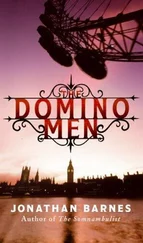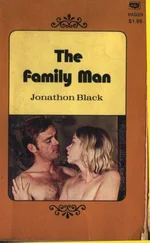Even more pitiable is the position of non-citizens, denied the corn-dole in their crises: ill-begotten creatures, hugging stall-fallen fruits to their chests as if they were babes. Others with babes by their sides, as uncared-for as stall-fallen fruit. Girls grown too filthy and skin-shrunken even to work as whores, at least by daylight, though by night outside the over-spilling taverns of the Aventine they might just scrape a meal from scraped knees.
Yet it is hard not to get swept away when you are in Rome. It is hard not to let the lustre get into your heart. Even the gutter in the middle of the street shines like gold in the sun. Useful becomes briefly bewitched by the beauty of it, more like lava than scum, though a handful of children beside it, at some game with stones and bone shards, look as if they only pantomime play. Too beset by hunger to lose themselves fully in imagination, too old already to produce more than a passable impression of childhood. Parents love against will and sense, it seems to Useful. It would be better to behave like beetles: to lay as many eggs as possible in some nook and hope that a few survive. To love in poverty is a commitment to a certainty of future pain. But Paul says that all of this is soon to change, in the blink of an eye. The Day of the Lord is shortly to come and Useful will stand with Paul when it does.

The parchment sellers ply beyond the slave market. By rights Useful should feel nervous, passing through that square, out in the open like this. But now he has fresh clothes and is fed and walks with purpose, no one will stop him. He looks just like any other slave out on his master’s business. A valuable fact of life: if you look like you know what you’re doing, no one will question you.
Not unaccustomed to barter from his travels with Philemon, Useful beats a reasonable deal from a trader with a disappointed slump and half-packed stock. And having saved Paul a good sum of money — probably enough to feed a family for a week — Useful thinks it not inappropriate to buy an apple to eat on the return walk. More so even than the apple, the scrolls of parchment under his arms feel prickly and delicious. It is easy to forget that these skins have been flayed from some poor beast. But, then, what is a beast, but a creation of God and what is Paul but God’s chosen apostle and Useful his scribe? Happy beast, then, to serve such a cause.
And happy Useful, upon the pavements of Rome. Among the spice stalls that burn and awaken the nostrils, free them from a self-induced sleep. Among the floury aromas of food booths, selling round Roman pie-loaf and hot pastries. Among the open-air barbers, shaving and tattle-sharing. Among the chained wine flagons, advertising taverns. Among the yellow songbirds trapped in cages of softwood. Singing of God’s creation, or to be free, or for a mate, or just because yellow songbirds are made to sing. What does the reason matter, when sing they do?
Useful dismisses the feeling that he is followed as paranoia, born from his weeks on the run. He ignores the sense that he is stalked, because whenever he turns to see, there is no such pursuer in sight. It is only as he knocks at Paul’s door, to be let in by Cyclops soldier Manius, that Useful catches the glance of a man who watches him. A man who visibly marks the portal at which Useful raps and doesn’t seem to mind being noticed. The watcher is elderly, or has a fistful of years over Paul at least. But if he is shrunken, in the state that Useful sees now, then in his days of glory he must have been a monster to make daemons scared of the dark. Probably a Jew, Useful would say. A giant, broken-nosed, frightening old Israelite, with cheeks drooping like a scent hound’s and eyes that know altogether too much. Eyes that continue to watch at least until Useful has gone in.
Useful wonders whether he should say something about the watcher, but it seems a bit silly somehow, once he is back inside, with the surly legionary guarding the door and Epaphras, Silas, Timothy, Aristarchus, Demas and Luke all on hand. Feels a bit daft to say, ‘Some old bloke was watching me come in and there was something a bit funny about him.’ The house is, after all, hardly unknown: several years already Paul has lived there, teaching about the Lord Jesus Christ quite openly to all who would hear him.

When Useful goes upstairs, Paul sniffs the parchment and rubs it between his thumb and forefinger; he has worked with skins himself in his time, though more in shop awnings and the like, but he knows a thing or two.
‘Pigskin,’ he says. ‘You’ve only bought bloody pigskin and me circumcised on the eighth day, of the tribe of Benjamin, a Hebrew of Hebrews,’ but he seems rather more amused than angry. ‘Don’t worry. Swine vellum may serve just as well for our story, my boy — perhaps it is even appropriate.’
‘Thank you, Master,’ Useful says.
Paul waves him to think no more of it, with an affectionate smile. Great love and great ire seem to coexist simultaneously in Paul. Or perhaps they don’t coexist: perhaps they fight one another for dominance inside, as Paul says Jacob and Esau did in the womb.
‘Now then, where were we?’ Paul asks.
Three Years after the Crucifixion
Saul could see nothing. What had been bright was black. He felt as if something lay across his vision, like the film that forms on the eyes of the dying, not a lens, darker than that, darker even than his lids, something more like scales, which blocked the world entirely.
Still lying on his back, on the packed dirt track where he had fallen, dropped like a tortoise by an eagle, Saul is vaporized, unable to locate the pieces of himself.
He hears his men, if they can be called that, if they were ever that, discussing him and what to do. Their voices are far away, echoes of a world unreal. Compared at least to the voice of Jesus, just gone, which Saul thinks was the realest thing he has ever heard.
Still, from some delirium distance, Saul hears his men in conclave. He tries to form words of his own but they will not come. The guards, having arrived at their decision, desert to a man, taking with them the goodly purse of money that was entrusted to Saul for lodgings, bribery and transport to carry the kidnapped back to Jerusalem. And they also take the mule and the swords, the letter from the high priest, for parchment is expensive, and even Saul’s own dagger. Then they leave.
But only moments afterwards, as if thinking better of it, they return.
Saul manages to speak now: ‘I knew you couldn’t abandon me,’ he says, the words croaking out of him, like slinking cave creatures unused to an exterior.
The guards do not reply. They just unfasten Saul’s sandals and his belt and lift them off. And then they take his outer coat and tunic as well. They leave Saul in his loincloth, sprawled in the dust, arms outstretched, feet pressed together, staring at the sun with eyes that cannot see.
And it seems to Saul that more people pass him by, leave him lying like that. It seems to him that he calls out and they do not respond. It seems to Saul that there is no love left in this land. He sits up and edges his way as best he can — crawling splay-fingered — to what he thinks is the side of the road and stays there, hunched like a hedgehog, but without even its feeble defence, with not a single spine to keep the world from him.
The air has cooled to night before someone stops. The man asks what has taken place. And Saul responds only that he has been robbed. Robbed and left like this, unable to see. The man’s accent is strange; he might come from Samaria; Saul doesn’t ask. The man gives him water from a gourd, sweet and flinty. The man leads him by the hand along the remainder of the road into Damascus. The man asks where he should take him to in Damascus, if he has kin or friends with whom he was to stay. And Saul tells the man to take him to the only place he knows of, the only man in truth he knows to live in Damascus at all: to the house of Ananias on Straight Street, to the leader of The Way.
Читать дальше













